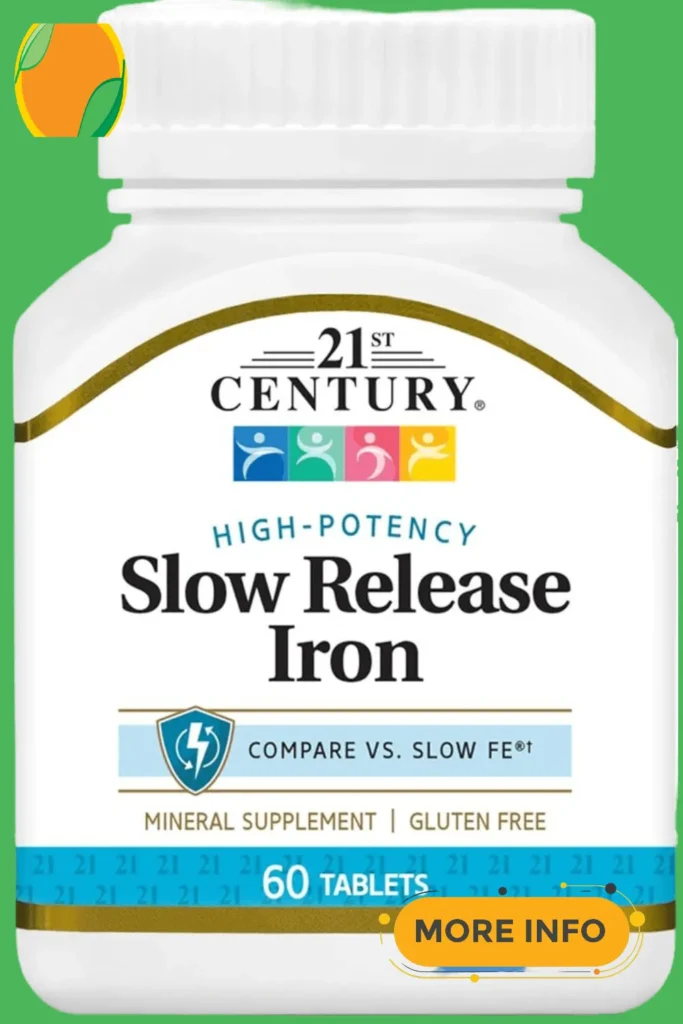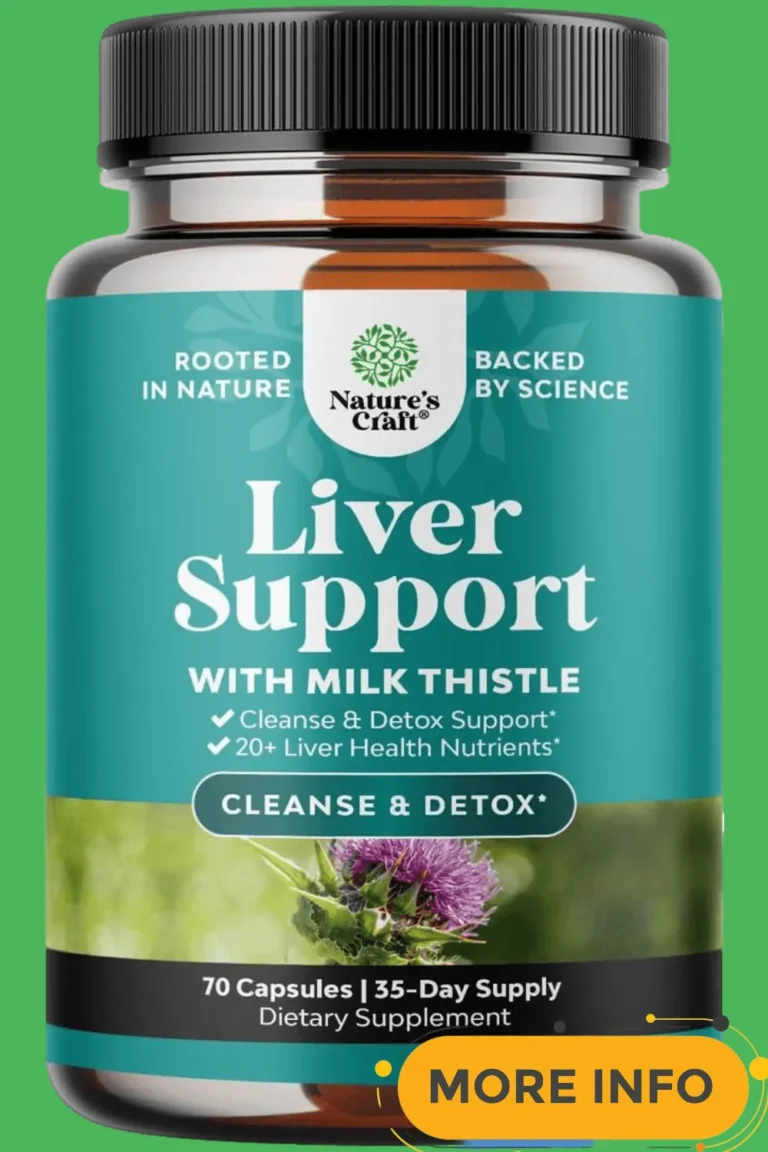Best Time to Take Iron Supplements
Ever wonder why, despite diligently taking your iron supplements, you still feel fatigued? The secret might lie not in the dosage but in the timing.
As it turns out, when you take your iron supplement can significantly impact its effectiveness and how well your body absorbs this vital mineral.
Welcome to our exploration of the best time to take iron supplements, where we unravel the science behind optimal timing and offer practical tips to maximize your health benefits.
Imagine unlocking a simple yet powerful strategy that could transform your energy levels and overall well-being.
Iron is essential for producing hemoglobin, which carries oxygen throughout your body; get it wrong, and you may experience persistent tiredness or even anemia.
Join us as we delve into expert advice and research-backed insights on the best practices for taking iron supplements — because getting this one detail right could be a game-changer for your health.
Iron supplements can be a crucial component of a healthy lifestyle, especially for individuals who may be at risk for iron deficiency.
However, knowing the best time to take iron supplements can greatly impact their effectiveness and absorption in the body.
In this article, we will explore the optimal timing for taking iron supplements to ensure maximum benefits for your health.
Iron is essential for the production of hemoglobin, a protein in red blood cells that helps transport oxygen throughout the body.
Without an adequate amount of iron, individuals may experience symptoms such as fatigue, weakness, and decreased immune function.
Therefore, it is important to understand when and how to take iron supplements to maintain optimal health.
Whether you are looking to prevent iron deficiency or improve your overall well-being, knowing the best time to take iron supplements can make a significant difference in their effectiveness.
Join us as we delve into the science behind iron supplementation and discover the ideal timing for incorporating these supplements into your daily routine.
Table of Contents Best Time to Take Iron Supplements
Morning for optimal absorption rate
Taking iron supplements in the morning is advantageous due to the body’s natural rhythms and its ability to facilitate optimal absorption rates during this time.
Research indicates that the morning hours are associated with higher levels of stomach acid, which aids in breaking down the supplement and enhancing absorption.
Additionally, the body’s metabolic rate is typically higher in the morning, enhancing the efficiency of nutrient absorption.
By consuming iron supplements in the morning, individuals can maximize the body’s ability to absorb and utilize the iron effectively, thereby promoting better overall health and well-being.
This strategic timing ensures that the body can efficiently process and benefit from the supplement, contributing to improved iron levels and enhanced health outcomes.
With vitamin C for absorption
To optimize the absorption of iron supplements, incorporating vitamin C into the daily regimen can significantly enhance the body’s ability to absorb and utilize the iron effectively.
Vitamin C plays a crucial role in promoting the absorption of non-heme iron, the type of iron commonly found in plant-based sources and supplements.
By consuming vitamin C-rich foods or supplements alongside iron supplements, individuals can create a more favorable environment for iron absorption within the body.
This synergistic relationship between iron and vitamin C enhances the overall bioavailability of iron, ensuring that the body can efficiently utilize this essential nutrient to support various physiological functions and maintain optimal health.
On an empty stomach
It is recommended to take iron supplements on an empty stomach to enhance their absorption in the body.
When taken with food, especially meals high in fiber or calcium, iron supplements may interact with these components, hindering their absorption rate.
By consuming iron supplements on an empty stomach, typically around 30 minutes to an hour before meals, individuals can create an environment in which the body can better absorb the iron, ensuring maximum effectiveness of the supplement.
It is essential to consult with a healthcare provider before making any changes to the timing or dosage of iron supplements to ensure personalized recommendations align with individual health needs and dietary habits.
Before or after meals
While the timing of iron supplement intake can play a crucial role in optimizing their absorption, it is also essential to consider potential interactions with meals or other supplements.
Certain foods, such as those rich in calcium or caffeine, may hinder the body’s ability to absorb iron effectively when taken simultaneously with the supplement.
Therefore, individuals should be cautious about pairing iron supplements with foods or beverages that could potentially interfere with the absorption process.
By being mindful of the timing of meals in relation to iron supplement intake, individuals can ensure they are supporting the body’s ability to utilize the iron efficiently for overall health and well-being.
Consulting with a healthcare provider can provide personalized guidance on the most suitable approach based on individual dietary habits and health considerations.
Avoid taking with antacids
It is important to note that iron supplements should not be taken with antacids due to potential interactions that can impact their effectiveness.
Antacids, commonly used to relieve heartburn or indigestion, contain compounds such as calcium, magnesium, or aluminum, which can inhibit the absorption of iron in the body if taken together.
Antacids can alter the pH levels in the stomach, affecting the absorption process of iron supplements.
To prevent any interference with iron absorption, it is recommended to space out the intake of iron supplements and antacids, ensuring a suitable time gap between consuming these two types of supplements.
This practice can help individuals maximize the benefits of iron supplementation without compromising their absorption rates, promoting better overall health outcomes.
Consult a healthcare provider first
Before starting any new supplement regimen, especially iron supplements, it is crucial to consult a healthcare provider first.
A healthcare provider can assess your individual health status, medical history, and current medications to determine the most appropriate supplement plan for you.
They can provide personalized recommendations tailored to your specific needs, ensuring that you are taking the correct type and dosage of iron supplements suitable for your health conditions.
Consulting a healthcare provider also helps in identifying any potential risks or interactions that may arise from taking iron supplements, particularly if you have underlying health issues or are on other medications that could affect iron absorption.
By seeking professional guidance before starting iron supplementation, you can optimize its effectiveness and minimize any adverse effects, promoting safe and beneficial outcomes for your health.
After the age of 50
After the age of 50, individuals may experience changes in their bodies that can impact nutrient absorption and utilization, including iron.
Aging can affect the body’s ability to absorb iron efficiently, leading to a higher risk of deficiency in this essential mineral.
Factors such as decreased stomach acid production, changes in gastrointestinal function, and the presence of certain health conditions more common in older adults can contribute to compromised iron absorption.
Therefore, it becomes increasingly important for individuals over 50 to pay attention to their iron levels and ensure they are meeting their daily requirements to support overall health and well-being.
Regular monitoring of iron status through blood tests and incorporating iron-rich foods or supplements as needed can help older adults maintain optimal iron levels and prevent deficiencies that could affect their health.
Follow specific supplement instructions carefully
It is crucial to meticulously follow the specific instructions provided for any supplement, including iron supplements, to maximize their benefits and minimize potential risks.
These instructions typically include details on dosage, frequency, and any additional recommendations for optimal absorption and effectiveness.
Failure to adhere to these guidelines may result in suboptimal outcomes or even adverse effects.
It is advisable to consult with a healthcare provider or a qualified professional before starting any supplement regimen, as individual needs and circumstances can vary.
By carefully following the recommended instructions and seeking guidance as needed, individuals can ensure they are utilizing iron supplements effectively to support their health and well-being.
In conclusion, determining the best time to take iron supplements can vary depending on individual factors such as absorption rates, personal schedules, and potential side effects.
While it is generally recommended to take iron supplements on an empty stomach for optimal absorption, some individuals may find it more tolerable to take them with food to minimize gastrointestinal discomfort.
Consulting with a healthcare provider or a registered dietitian can provide personalized guidance on the most suitable timing for iron supplementation based on specific needs and health conditions.
It is essential to adhere to recommended dosages and maintain regular monitoring to ensure effective and safe iron supplementation.
FAQ
What is the best time of day to take iron supplements for maximum absorption?
The best time of day to take iron supplements for maximum absorption is typically in the morning on an empty stomach, as this allows for better absorption of the iron.
Avoid taking iron supplements with calcium-rich foods or beverages, as calcium can inhibit iron absorption.
If iron supplements cause stomach upset, taking them with a small amount of food may help alleviate this issue.
It is advisable to consult with a healthcare provider for personalized recommendations on the timing and dosage of iron supplements.
Are there any specific foods or medications that should be avoided when taking iron supplements?
Yes, certain foods such as dairy products, coffee, tea, and high-fiber foods can inhibit iron absorption.
Additionally, medications like antacids, proton pump inhibitors, and calcium supplements can also interfere with iron absorption and should be taken at different times than iron supplements.
It is advisable to consult with a healthcare provider to determine the best way to take iron supplements in order to maximize absorption and effectiveness.
Should iron supplements be taken on an empty stomach or with food?
Iron supplements are generally recommended to be taken on an empty stomach to enhance absorption.
However, some individuals may experience stomach irritation or discomfort when taking iron supplements on an empty stomach.
In such cases, taking iron supplements with food can help minimize these side effects.
It is best to consult with a healthcare provider to determine the most suitable method for taking iron supplements based on individual needs and tolerances.
Are there any potential side effects or interactions to be aware of when taking iron supplements at certain times of day?
Taking iron supplements on an empty stomach can cause more gastrointestinal side effects like nausea and stomach pain.
It is generally recommended to take iron supplements with food to reduce these side effects.
Additionally, iron can interfere with the absorption of certain medications like antibiotics and thyroid medications, so it’s important to consult with a healthcare provider before taking iron supplements to avoid any potential interactions.
Is there a recommended duration or schedule for taking iron supplements to see optimal results?
It is generally recommended to take iron supplements on an empty stomach for optimal absorption, typically in the morning.
However, it is important to consult with a healthcare provider to determine the appropriate dosage and duration for your individual needs, as excessive iron intake can lead to toxicity.
In many cases, iron supplements are taken for a specific period of time to address a deficiency and improve iron levels in the body.
Regular monitoring of iron levels through blood tests is also recommended to ensure the supplements are effective.







